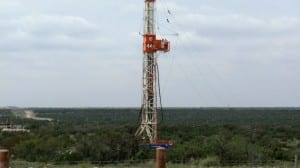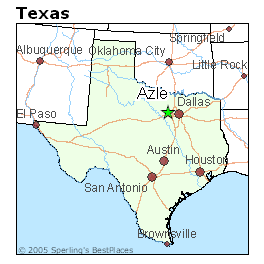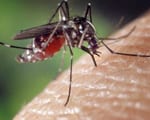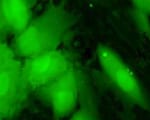USGS’s NetQuakes program and IRIS providing the equipment to study geographic area experiencing recent small earthquakes
Seismologists from SMU will deploy a variety of seismic monitors in and around Azle, Texas, to study the recent burst of small earthquakes that have been occurring in the area northwest of Fort Worth.
The first group of instruments, four digital monitors provided by the U.S. Geological Survey (USGS), will be deployed as early as this week to monitor the burst of seismicity that has been occurring in the area since early November. The USGS NetQuakes instruments are designed to be installed in private homes, businesses, public buildings and schools with an existing broadband connection to the internet, and data from those monitors will be available online.
SMU’s research team, led by Heather DeShon, associate professor of geophysics, also will deploy a group of 15, single-channel sensors provided by the Incorporated Research Institutions for Seismology (IRIS) Program for Array Seismic Studies of the Continental Lithosphere (PASSCAL) and another four or five broadband instruments from other sources. The additional monitors will allow researchers to study a broader area.
“We are first going to focus in on where the earthquakes have been occurring — about a five-to-six-mile area near Reno and Azle,” DeShon said. “How long the monitors remain depends on continued seismicity. We’re thinking a few months.”

The locations of the monitors will remain confidential to preserve the integrity of the data they will be collecting.
About 20 earthquakes have been recorded in North Texas since Nov. 1. Most recently, an earthquake registering 3.7 was recorded near Mineral Wells early Monday, about 24 hours after an earthquake registering 3.6 was recorded north of Azle.
North Texas is an area of extensive petroleum production — particularly natural gas drawn from the Barnett Shale formation in the Fort Worth Basin.
On Dec. 23, the USGS provided a preliminary report on findings from the monitoring. The Dec. 23 report was presented to Azle Mayor Alan Brundrett in a letter, which is available online at “USGS Preliminary Report to the Mayor of Azle.”
Earlier studies indicated liking between seismicity and injection wells
Two studies produced by a group of SMU and University of Texas at Austin seismologists since 2009, the most recent published this month, have indicated a possible linkage between seismicity and some injection wells drilled for the disposal of oil and gas production fluids. The Azle monitors, however, will not be deliberately sited near injection wells.
“The first goal is to get a better handle on where these earthquakes are occurring,” DeShon said. “If it turns out they are near injection wells, then we’ll study that potential link. The primary goal is to provide better information for the public.”

The USGS National Earthquake Information Center reports that in some regions, such as the south-central states of the U.S. (which includes the North Texas region) a significant majority of recent earthquakes are thought by many seismologists to have been human-induced.
“Even within areas with many human-induced earthquakes, however, the activity that seems to induce seismicity at one location may be taking place at many other locations without inducing felt earthquakes,” reads the summary posted on a page spelling out the basic information stemming from Monday’s Azle earthquake. “In addition, regions with frequent induced earthquakes may also be subject to damaging earthquakes that would have occurred independently of human activity. Making a strong scientific case for a causative link between a particular human activity and a particular sequence of earthquakes typically involves special studies devoted specifically to the question.” — Kim Cobb
Follow SMUResearch.com on Twitter.
For more information, www.smuresearch.com.
SMU is a nationally ranked private university in Dallas founded 100 years ago. Today, SMU enrolls nearly 11,000 students who benefit from the academic opportunities and international reach of seven degree-granting schools. For more information see www.smu.edu.
SMU has an uplink facility located on campus for live TV, radio, or online interviews. To speak with an SMU expert or book an SMU guest in the studio, call SMU News & Communications at 214-768-7650.


 NPR: “Boiling Hot: How Fracking’s Gusher of Geothermal Energy is Wasted”
NPR: “Boiling Hot: How Fracking’s Gusher of Geothermal Energy is Wasted” KERA, NOVA: SMU researcher Peter Weyand discusses the upper limits of human speed.
KERA, NOVA: SMU researcher Peter Weyand discusses the upper limits of human speed.  The Undying Radio: Familiarity breeds content when it comes to listeners and music
The Undying Radio: Familiarity breeds content when it comes to listeners and music Mosquito indexing system identifies best time to act against potential West Nile Virus outbreaks
Mosquito indexing system identifies best time to act against potential West Nile Virus outbreaks Sweden, SMU psychologists partner to launch parenting program that reduces child abuse
Sweden, SMU psychologists partner to launch parenting program that reduces child abuse Chemical probe confirms that body makes its own rotten egg gas, H2S, to benefit health
Chemical probe confirms that body makes its own rotten egg gas, H2S, to benefit health Study: High-volume Bitcoin exchanges less likely to fail, but more likely to suffer breach
Study: High-volume Bitcoin exchanges less likely to fail, but more likely to suffer breach